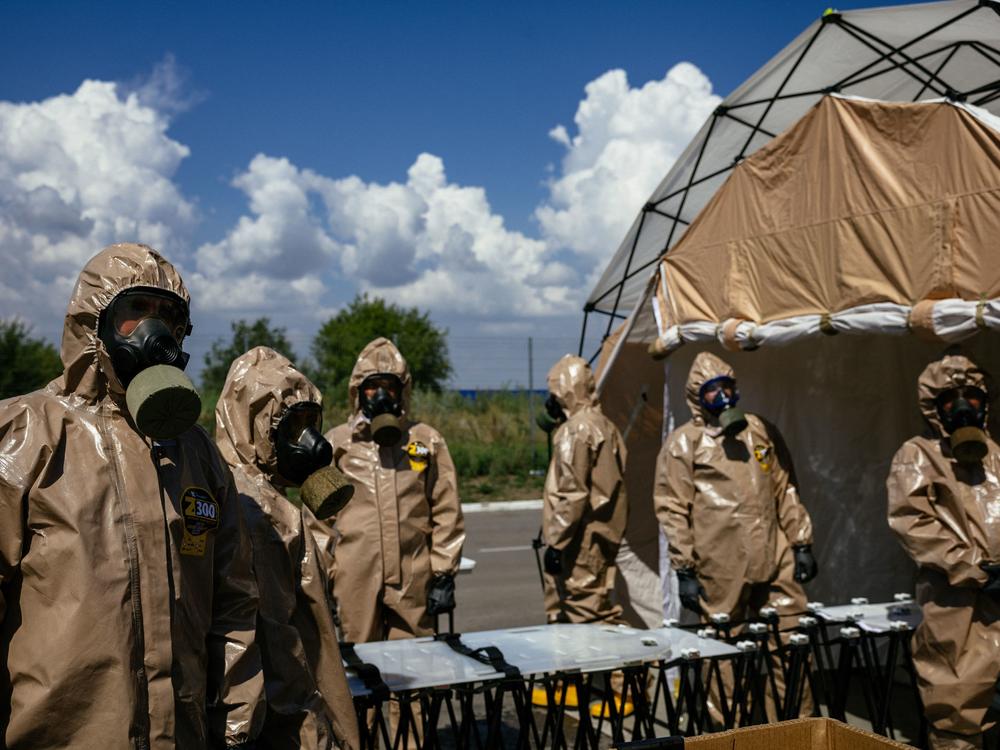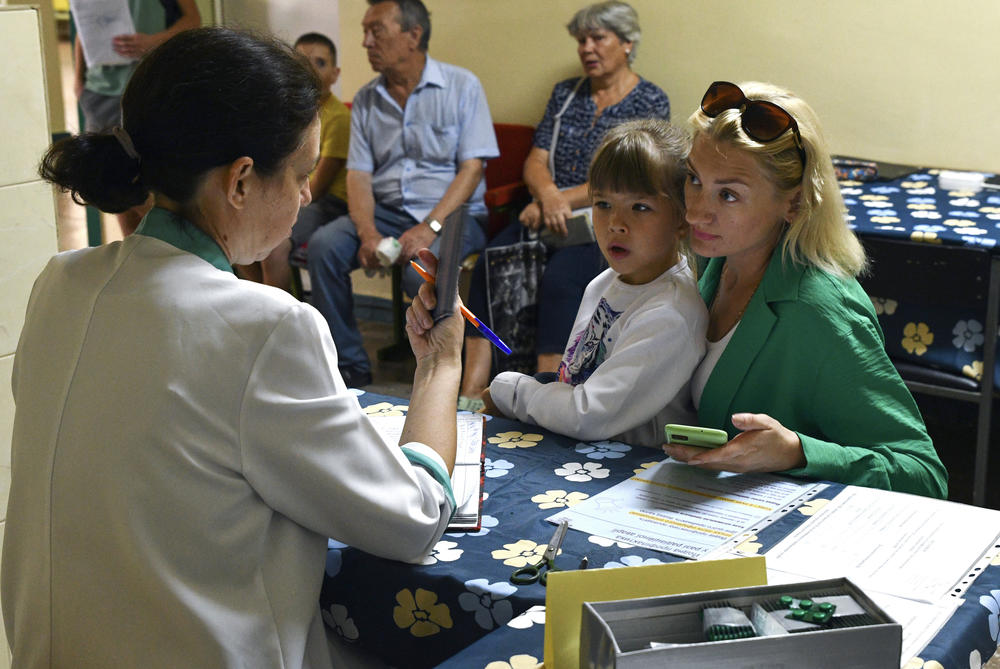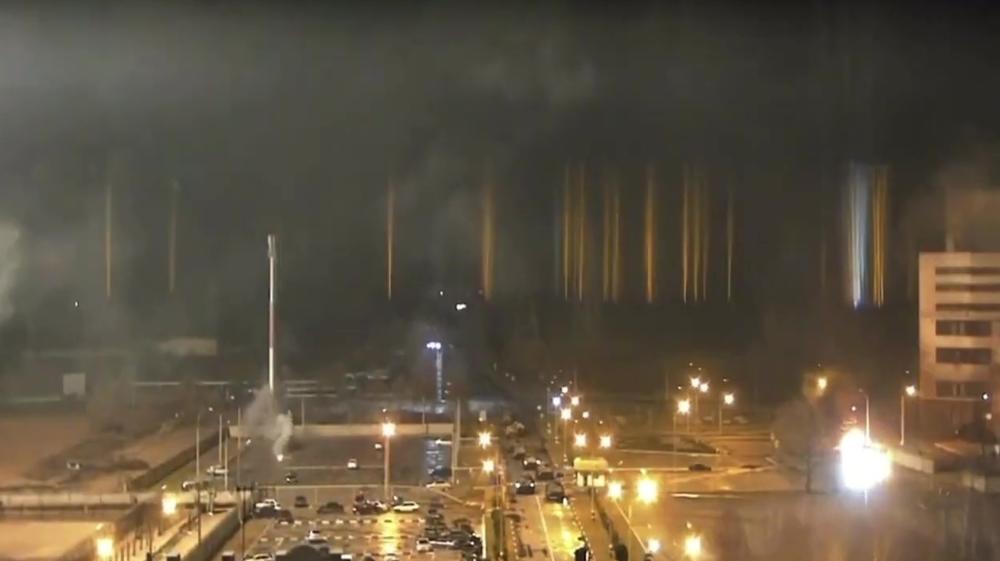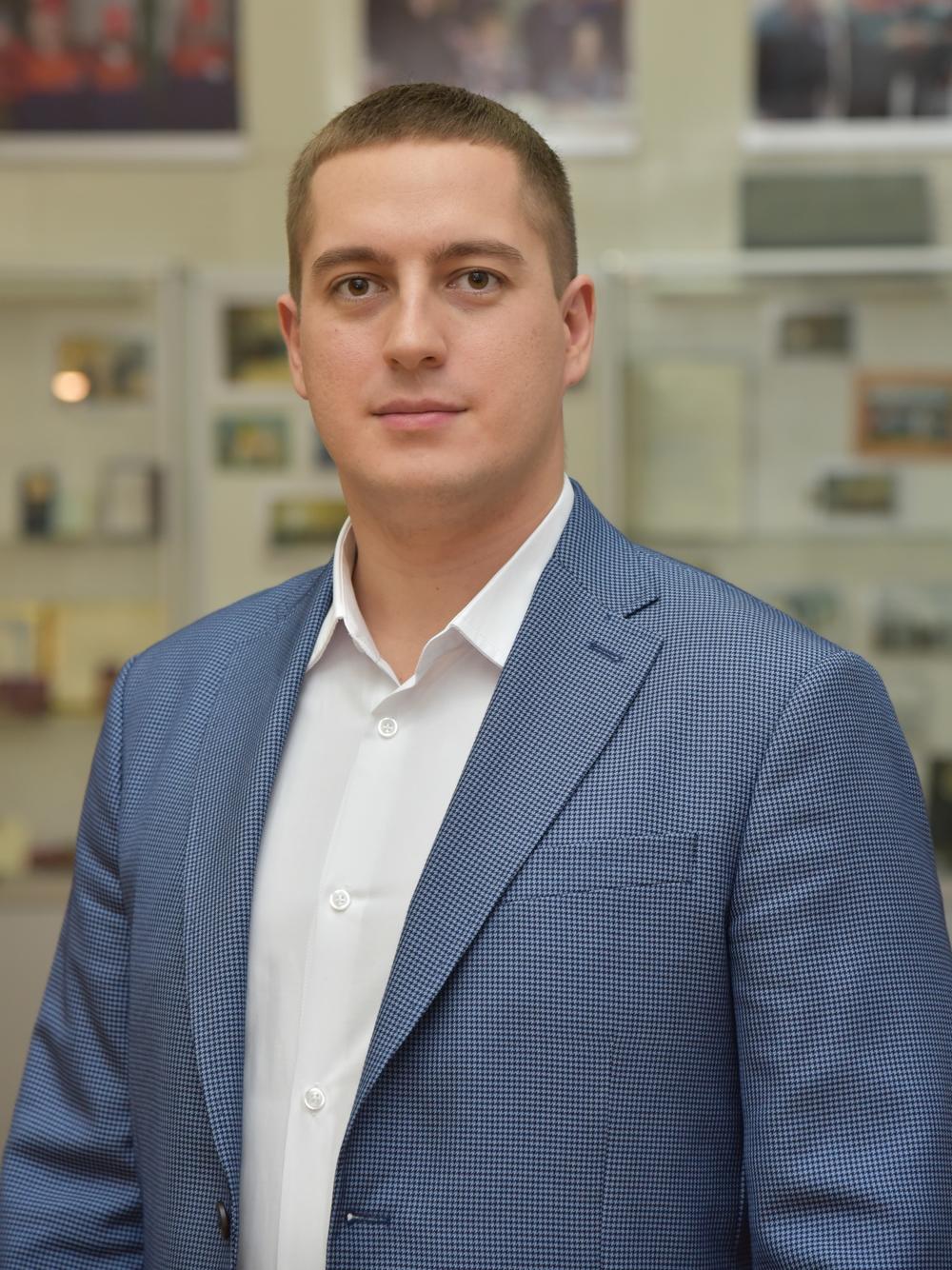Section Branding
Header Content
What it's like for Ukrainians working at a nuclear plant under Russian occupation
Primary Content
KYIV, Ukraine — The International Atomic Energy Agency says a team is headed to the Zaporizhzhia Nuclear Power Plant, the first such inspection team to be let in since Russian forces took over the complex in southern Ukraine in early March. The mission will assess the safety and security of the plant, as well as the conditions of the largely Ukrainian staff inside.
"It's getting more and more difficult every day for the staff to provide safety," Andriy Tuz, former head of PR at the plant, tells NPR. "The people are scared, they want to leave."
Tuz, 32, is now in Switzerland, but still keeps in touch with his former colleagues. He says the only right thing to do is to demilitarize the complex immediately. Experts have made it clear that a potential disaster is imminent if shelling near the plant continues — something both the Russians and Ukrainians blame each other for.
Tuz witnessed the takeover of Europe's largest nuclear power plant on March 3 with his own eyes.
"I was in [Enerhodar, the city closest to the plant] and I heard explosions, they sounded just like the crackle of fireworks," Tuz says. There were dozens of military vehicles and several buildings in the complex came under fire that night, he says.
At the time, the 10-year veteran of the complex was the head spokesman for the plant and continued to go to work for four months after it became occupied. At first, he says, the Russians stayed out of the staff's way. But as the months wore on, they started interfering.
"It's a big pressure," he says. "It affects the families who feel threatened, and it's emotionally hard for people."
Tuz says the Russians also tried to coax him into spreading misinformation about what was happening at the plant — but he resisted, drawing the ire of his occupiers. When he wouldn't cooperate, he says he wasn't allowed to do this job anymore.
By mid-June, shelves in Enerhodar's shops stayed empty and the pharmacies ran out of medicine. Tuz decided to leave Ukraine with his mother and embarked on a journey that would take him through Russian-occupied Crimea and into Russia, where he says he was detained multiple times and endured physical abuse and torture. Tuz's documents were also confiscated, he says, forcing him to stay in Russia even longer.
He and his mother would eventually reach Georgia. After that, the pair would eventually drive all the way to Switzerland, where he lives in safety — but without a job or permanent home.
The following interview has been edited and condensed for clarity. The details of Tuz's experiences in Russia could not be independently verified.
Interview Highlights
On the day the plant was occupied
It was very scary. We didn't know what to do next. Since the war began, most people of Enerhodar had been thinking this city would be the safest place in Ukraine. We have common sense, no one could have imagined a nuclear plant under fire, or any place next to the power plant.
On working at the plant under Russian occupation
In the first days and first months the military were not allowed to the workplaces or near the staff. But then Russian soldiers started making the rounds and forcing their way to the workplaces of the Ukrainian staff. Armed Russian soldiers were everywhere, and some people were kidnapped and made to cooperate with Russia. So, the workers were under a lot of psychological pressure.
When I was at the power plant, the Russian military groups were uncoordinated. More than once some groups tried to shoot each other — and these cases weren't that rare. I also saw a lot of military vehicles entering the power plant; tanks and military vehicles were constantly moving. Sometimes they were next to the power units. The staff didn't know what to do, they had the rounds to make, they needed to check the equipment, but there was a tank right in front of it.
On escaping through Crimea
On June 19, we left the city around 5 a.m. There were 15 armed checkpoints where [the Russian military and Russian-backed Donetsk officials] looked at your documents on the way to the administrative border of Crimea. Along the way, we saw a lot of wheat being taken out of Ukraine by Russians and heavy artillery coming in. We reached the border at 11 a.m. and then I was taken to a filtration camp. They didn't use physical force; they only tried to frighten us. I was in the camp, surrounded by a chain-link fence, for six hours. I was let go when they realized I was not a nationalist and have no connections with the military.
On his detainment in Sochi
We were then stopped in the [Russian] town of Magri by the Russian Federal Security Service and I was questioned again. They strip-searched me, looking for Ukrainian tattoos and they also searched my car. Then I was brought to Sochi on June 21 by the Russian FSB and they accused me of having links to the Azov Battalion. They detained me for three days. They physically abused and tortured me. Punched, kicked, handcuffed and burned me. They put a plastic bag over my head and tape over my eyes. I was only let go after I was forced to record a video with misinformation about the power plant, which was broadcast in Russia. On the third day, I was released, but they confiscated my documents, forcing me and my mother to stay in Russia for 20 more days.
On keeping in touch with former colleagues
[The workers] are made to stay at their workplace overtime during shelling; they don't have a normal work schedule. And much fewer people are available now, they don't have backup in case someone gets ill. There's enough staff, but it's much more difficult for them to perform their duties. The ones who stay and work to ensure nuclear safety under such pressure, they are real heroes.
Copyright 2022 NPR. To see more, visit https://www.npr.org.




